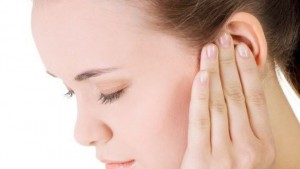أصوات يصدرها جسمك لإنذارك بأن لديك مرض

10 أصوات يصدرها جسمك لإنذارك بأن لديك مرض
صفير الرئتين
احتكاك المفاصل والإحساس بالألم
صفير الأنف
صوت صفير في الأذنين
الحازوقة المتكررة
صوت غرغرة البطن
أصوات الفك
طنين الأذنين
صرير الأسنان
الشخير
وإليك الاسباب والعلاجات مفصلة
يجمع العديد من الأطباء والمختصين، على قدرة الجسم على إرسال إشارات لصاحبه وعلامات تنذر بخطر الإصابة بأمراض تظهر فور الإصابة بها.
ونستعرض فيما يلي 10 علامات يفرزها الجسم بمثابة إنذار بالإصابات المرضية المختلفة، والتي تستوجب الفحص والمتابعة مع طبيب.
1- صفير الرئتين :
يرتبط الصفير أيضاً بمرض الانسداد الرئوي المزمن، المسمى التهاب القصبات (Bronchitis) المزمن أو COPO.
الربو (Asthma):
الربو أو Asthma هو مرض انسداد الرئتين الأكثر انتشاراً لدى الأطفال والمراهقين. هذا المرض يصبح أكثر انتشاراً مع مر السنين. الصفير المصاحب للربو يحدث بسبب تقلص العضلة في جدار مجاري التنفس الصغرى في الرئتين. كما أن انتاج كمية كبيرة من البلغم هي أيضاً من أسباب ضيق التنفس ، ويمكن أن تزيد من صعوبة إخراج الهواء (الزفير).
قد تحدث نوبة الربو بسبب تلوث، ضغط نفسي، هواء بارد، تلوث الهواء أو تعرض لعامل مثير للحساسية. العوامل الشائعة التي تثير الحساسية تشمل: الغبار، طلع غبار الزهور، العفن، الغذاء وفراء الحيوانات. ويمكن أن يحدث الصفير أيضا بعد لدغة حشرة أو استعمال دواء معين. مع ذلك، ليس هنالك، بشكل عام، أسباب واضحة لنوبة الربو

2 – احتكاك المفاصل والإحساس بالألم:
يعاني الكثير من الأشخاص وخصوصاً كبار السن من مرض إحتكاك الركبة حيث يشكل هذ المربض عائق أثناء الحركة وأثناء ممارسة النشاطات اليومية الإعتيادية لدى كبار السن بشكل خاص، حيث إنّ مع زيادة معدّل عمر الفرد تظهر الأمراض النّاتجة عن التقدم في السن وعن إستهلاك الأشخاص للأعضاء الموجودة في الجسم والغضاريف والعظام.
ينتج إحتكاك الركبة عند الأشخاص اللذين يعانون من تآكل في الغضروف الذي يفصل بين عظام مفصل الركبة حيث يتكوّن مفصل الركبة من نهاية عظمة الفخذ مع تلاقيه ببداية عظمة الساق ويفصل بينهما غضروف بشكل مادة بيضاء بنسيج يعمل على الوقاية من الإحتكاك، كما أنّ هناك غضروفين هلاليين وأربطة تحيط بمفصل الركبة، وينتج إحتكاك الركبة الذي يكون على شكل ألم أو فرقعة في الركبة أو صوت طقطقة في الركبة نتيجة اهتراء أو بداية اهتراء غضروف الركبة وهي التي تشكل نسيج أبيض يفصل عظام المفصل ويغلفها.

يمكننا علاج إحتكاك الركبة من خلال عدة طرق :
الراحة للمفصل:يمكننا من خلال إراحة المفصل وتقليل الآلام الناتجة عن المفصل أن نقوم بوقف الإحتكاك ولو لفترة مؤقتة.
وضع كمادات الثلج:يمكننا وضع كمادات الثلج على الرّكبة لمدة تتراوح بين ربع ساعة إلى عشرين دقيقة للتخفيف من الألم ولإراحة الركبة.
إستعمال المسكنات:يمكننا استعمال الأدوية المسكنة للتخفيف من حدة الآلام من خلال تناول البنادول أو أخذ حقنة من الفولتارين.
عمل مساج للركبة:يمكننا عمل مساج لطيف للركبة من خلال وضع كريم الفولتارين على الركبة فيعمل على التخفيف من الألم.
عليك بممارسة التمارين الرياضية:هناك تمارين رياضية خاصة تعمل هذه التمارين على تقوية العضلات المحيطة بمفصل الركبة، لذلك عليك بممارسة التمارين بانتظام.
عليك بالتخفيف من الوزن قدر المستطاع:إنّ زيادة الوزن تشكل ضغط كبير على المفاصل وتعمل على زيادة الإحتكاك في مفصل الركبة لذلك عليك بتخفيف وزن الجسم لكي لا تحمل الركب ضغط لا تحتمله ولتجنّب حصول إحتكاك في الركبة أو للتخفيف من الإحتكاك.
تجنب إصابة المفصل وتجنب الحركات العشوائية والحركة الزائدة للمفصل:وتكون إصابة المفصل نتيجة لممارسة الألعاب الرياضية الخطرة مثل الملاكمة والمصارعة أو أي إصابة يتعرض لها الشخص في منطقة الركبة، حيث يمكن أن تكون إصابات الركبة نتيجة حادث سير أو نتيجة تمزق الغضروف الهلالي للركبة أو الرباط الصليبي لذلك عليك أخذ الحيطة والحذر وتجنب التعرض لأي إصابة
3 – صفير الأنف :
يشمل علاج التهاب الأنف الأرجي تجنب العوامل المثيرة لفرط التحسس اضافة الى العلاج الدوائي لتخفيف حدة الأعراض ومنها : – العقاقير الستيرويدية. العقاقير الدوائية المُضادة للهيستامين . – العقاقير الدوائية المُزيلة لاحتقان الأنف . – الرذاذ الأنفي الذي يُخفف من حدة الأعراض بتثبيط افراز الهيستامين
4 – صوت صفير في الأذنين :
أسباب صفير الأذن
منها ما تتعلق بالأذن الخارجية : تنتج عن تراكم الصمغ في الأذن الخارجية الذي يسد مجرى السمع لدى الإنسان . ويمكن التخلص من هذه المشكلة عبر غسل الأذن عند الطبيب وإزالة الصمغ الزائد عن حاجة الأذن لإعادة الوضع الطبيعي للسمع
أسباب تتعلق بالأذن الوسطى : ومن أهمها التهابات الأذن الوسطى ، وثقب غشاء طبلة الأذن الداخلية ، وتجمع السوائل في الأذن الوسطى ، كذلك تكلس قاعدة عظيمة الركابة الموجودة داخل الأذن الوسطى ، إضافة إلى وجود أورام داخل الأذن الوسطى الوعائية .
أسباب تتعلق بالأذن الداخلية : كالإصابة بمرض منيير ، وهو عبارة عن طنين متصاحب بدوخة وضعف في السمع ، وشعور بامتلاء الأذن بالسائل .
أصوات الضجيج العالية والمستمرة لفترة طويلة ، كتلك الموجودة في المصانع والمعامل أو مكبرات الصوت أو أصوات الإنفجارات في الحروب وما شابه ، لأن هذه العوامل تؤدي إلى تلف الخلايا السمعية التي تستقبل الأصوات داخل الأذن
تناول بعض العقاقير الطبية الضارة بالأذن : مثل بعض المضادات الحيوية وأدوية مدرات البول و الأسبرين وبعض مضادات الأورام
أسباب تتعلق بالأمراض العصبية : كأورام المخيخ وبعض أورام العصب السمعي .
الشيخوخة : حيث أن طنين الأذن يعد من الأمراض المصاحبة للشيخوخة
إذا استبعدت جميع الأسباب السابقة فهذا يعني أن الطنين ناتج عن اضطرابات عصبية مركزية

5 – الحازوقة المتكررة :
أنواع الحازوقة ( الفواق )
هناك عدّة أنواع للحازوقة، منها:
الحازوقة العابرة: وقد تستمرّ لمدّة 48 ساعة كحدٍّ أقصى.
الحازوقة المستمرّة: وهذه تستمرّ أكثر من 48 ساعة، وأقلّ من شهر.
الحازوقة المعنّدة: وهي الحازوقة الّتي تستمرّ لمدّة شهرين متتاليين.
والحازوقة الّتي تحدث لفترةٍ معيّنة قصيرة شائعة ولا تحتاج إلى فحوصاتٍ طبيّة، أمّا إذا استمرّت أكثر من 24 ساعة فيجب زيارة الطبيب، كما أنّها إذا استمرّت خلال نوم الشخص فذلك يوحي إلى وجود مشكلة لديه عضويّة وليست نفسيّة، ويجب عليه زيارة الطبيب لمعرفة الأسباب الّتي تؤدّي إلى حصولها.
نصائح للتخلّص من الحازوقة
للتخلّص من الحازوقة يجب اتّباع عدّة نصائح، منها:
القيام باستنشاق الهواء من الأنف قدر المستطاع، و الحرص على إبقاء الفم مغلقاً.
القيام بشرب كميّات كبيرة من الماء على شكلٍ متواصل حتّى تنتهي الحازوقة.
التنفّس بكيس ورقيّ بشكلٍ متكرّر .
وضع ملعقة عسل تحت اللسان، أو من السكّر ، ونتكرها لتذوب.
ضمّ الفخذين إلى البطن؛ لنعيد الحجاب الحاجز لوضعه الطبيعيّ
6 – صوت غرغرة البطن :
أعراض أصوات البطن :
عندما تظهر هذه الأعراض مع أصوات البطن فغالباً ما تشير إلي الإصابة بأحد الأمراض و تشمل هذه الأعراض ما يلي :
الغازات الزائدة .
غثيان .
قئ .
الإسهال المتكرر .
الإمساك .
براز دموي .
حموضة معوية و حرقان .
فقدان الوزن المفاجئ .
الشعور بإمتلاء المعدة .
بمجرد ظهور أي من هذه الأعراض عليك يجب الإتصال بالطبيب للحصول علي الرعايا الطبية العاجلة و تجنب الإصابة بأي مضاعفات

7 – أصوات الفك :
من أسباب طقطقة الفك
اثناء المضغ الاتي:
*صدمات الفك.
* طحن الاسنان او الضغط عليها.
* انزلاق مفصل الفك.
* التهاب مفصل الفك.
* او بدون مضغ كالضغوط النفسية التي تجعل المصاب يضغط على عضلات الفك و الوجه .

8 – طنين الأذنين :
قد تختلف الضوضاء المسموعة فى حدتها و قد تسمعها في إحدى الأذنين أو كليهما. في بعض الحالات، يمكن أن يكون الصوت مرتفع لدرجة أن يتداخل مع قدرتك على التركيز أو سماع الصوت الفعلي. الطنين قد يكون مستمرا أو قد يأتى و يذهب.
هناك نوعان:
طنين ذاتى:
انت وحدك من تسمعه وهو أكثر الأنواع شيوعا.
قد يكون بسبب مشاكل فى الأذن أو بسبب الأعصاب السمعية أو الجزء من المخ المسئول عن الاشارات السمعية.
طنين خارجى:
يسمعه طبيبك عندما يقوم بالفحص
هذا نوع نادر قد يحدث بسبب مشكلة فى الأوعية الدموية أو عظام الأذن.
الأسباب الشائعة:
– طنين مرتبط بتقدم العمر:
مشاكل السمع تزداد سوءا مع تقدم العمر، وعادة ما تبدأ في حوالي سن 60 . يمكن أن تسبب فقدان السمع وطنين . المصطلح الطبي لهذا النوع من فقدان السمع هو صمم شيخوخي .
– التعرض لضوضاء عالية:
سماع أصواتا عالية مثل تلك الناتجة من المعدات الثقيلة,
أجهزة الموسيقى المحمولة مثل مشغلات MP3 أو أجهزة آي بود يمكن أيضا أن تسبب الطنين المرتبط بفقدان السمع
إذا لعبت بصوت عال لفترات طويلة.
الطنين الناجم عن التعرض على المدى القصير، مثل حضور حفل موسيقى صاخب وعادة ما يختفى سريعا
التعرض الطويل الأمد لصوت عال يمكن أن يتسبب في ضرر دائم .
– انسداد بسبب الشمع:
شمع الأذن يحمي قناة الأذن من الأوساخ و البكتريا عندما يتراكم الكثير من شمع الأذن يصبح من الصعب أن يغسل بشكل طبيعي مما يتسبب في فقدان السمع أو تهيج في طبلة الأذن والتي يمكن أن تؤدي إلى طنين.
– تغير فى عظام الأذن:
تشنج العظام في الأذن الوسطى قد يؤثر على السمع و يسبب الطنين.

9 – صرير الأسنان :
رغم أن هذه الحالة تحدث نتيجة للتعرض للقلق والضغوطات النفسية الشديدة، إلا أنه غالبا ما يكون سببها الرئيسي هو فقدان سن أو وجود سن ملتو أو سوء في إطباق الفكين و بما أن اصطكاك الأسنان عادة ما يحدث أثناء النوم، فإن العديدين لا يعلمون بأنهم يقومون به ، غير أن هناك أعراضا تدل وبشكل كبير، على أن الشخص يقوم به منها: الصداع وألم الفك المتواصلين. ويذكر أن العديدين يكتشفون أنهم يقومون باصطكاك أسنانهم عبر من يشاركهم في غرفة النوم، وذلك كون الاصطكاك يصدر صوت صرير مسموع. ويذكر أنه على من يشتبه بأنه يقوم باصطكاك أسنانه مراجعة طبيب الأسنان.
إن استمر اصطكاك الأسنان لمدة طويلة، فهو قد يؤدي إلى كسر جزء من السن أو خلخلته أو فقدانه. ويذكر أنه أيضا قد يؤدي بالأسنان إلى أن تبلى من جذورها، ما قد يؤدي إلى الحاجة إلى عمل جسر للأسنان أو تلبيس السن بتاج صناعي أو فتح نفق في جذر السن أو وضع طقم أسنان جزئي أو كامل. وﻻ تقتصر أضرار اصطكاك الأسنان على الأسنان فحسب، وإنما قد تشمل إيذاء عظام الفك أو تغير في شكل الوجه
10 – الشخير :
لا تعتبر عملية الشخير مشكلة ضوضائية فحسب بل أحيانًا قد تكون مصاحبة بما يسمى بانقطاع التنفس أثناء النوم قد تصل إلى 10 ثوانى أو تزيد قليلًا و أثناء هذا الانقطاع يتوقف الشخير ثم يعود مرة أخرى مع عودة التنفس , و هو يخرج عادةً أثناء الشهيق .

و تختلف أسباب الشخير تبعًا لاختلاف المرحلة العُمرية :
فى الأطفال :
قد تكون نتيجة عيوب خُلُقية مثل : انسداد الفتحة الخلفية للأنف من ناحية واحدة
او نتيجة تضخم للحمية أو اللوزتين مما يجعل الطفل يتنفس من فمه دون أنفه فيحدث اهتزازات فى سقف الفم أو الحنجرة مُحدثًا صوت الشخير .
و قد تكون لعدة أسباب أخرى منها :
نتيجة استنشاق الهواء أو التنفس عن طريق الفم بشكل غير طبيعى ” الاستنشاق الفمي
نتيجة ضيق الأنف كانسداد أو اعوجاج فى حاجز الأنف , أو تضخم المحارات الأنفية ” الشخير الأنفي “
الشخير العام : و ذلك نتيجة عادات سيئة ينتهجها الإنسان أو أسباب عامة كالسمنة مثلًا مُؤديًا إلى زيادة حجم الرقبة , أو نتيجة زيادة فى حجم اللوزتين أو اللحمية .
تعتبر ” السمنة ” أشهر سبب للشخير فى الكبار لأنها تؤدى إلى تضخم بعض الأجزاء الموجوة خلال ممر الهواء و هى ما يعرف بسقف الحنك الرخو و لهاة الحلق أما عند الأطفال فإن أشهر سبب هو التضخم فى اللوزتين و اللحمية .
اعراض انسداد مجرى الهواء
الشخير و قد يكون مُصاحبًا بانقطاع التنفس أثناء النوم ” المشكلة الرئيسية “
الشعور بالخمول و النوم الثقيل أثناء النهار.
الصداع عند الاستيقاظ من النوم .
فقد التركيز و كثرة النسيان .
قد يكون مصاحبًا بارتفاع ضغط الدم.
التبول اللاإرادي عند الأطفال .
مضاعفات الشخير :
ارتفاع ضغط الدم.
تغيرات فى الشخصية .
أهمها مشاكل عائلية كالطلاق.
كيف يمكن علاج الشخير ؟
أول طريق للعلاج هو معرفة سبب المرض لذا فإن هناك نوعان من العلاج :
– علاج دوائى طبي للشخير :
التخلص من السمنة .
الابتعاد عن الكحوليات و التدخين و المهدئات .
تغيير وضعية النوم : لأن النوم على الظهر يزيد من الأمر فيجب على الشخص أن ينام على الجانب .
فتح ممرات التنفس فى الأنف .
فى بعض الحالات يتم إعطاء المريض بعض الأدوية لحل تلك المشكلة.
– العلاج الجراحي للشخير :
بإجراء واحدة من العمليات الآتية :
استئصال اللحمية و اللوزتين فى خلال التضخم.
فى حالة اعوجاج الحاجز الأنفي يجرى عملية تجميل لتعديله.
العلاج الأمثل هو العلاج الجراحي فى مكان الانسداد سواء أكان فى الأنف أو البلعوم الفمي من خلال بعض العمليات المضمونة و الغير معقدة.






